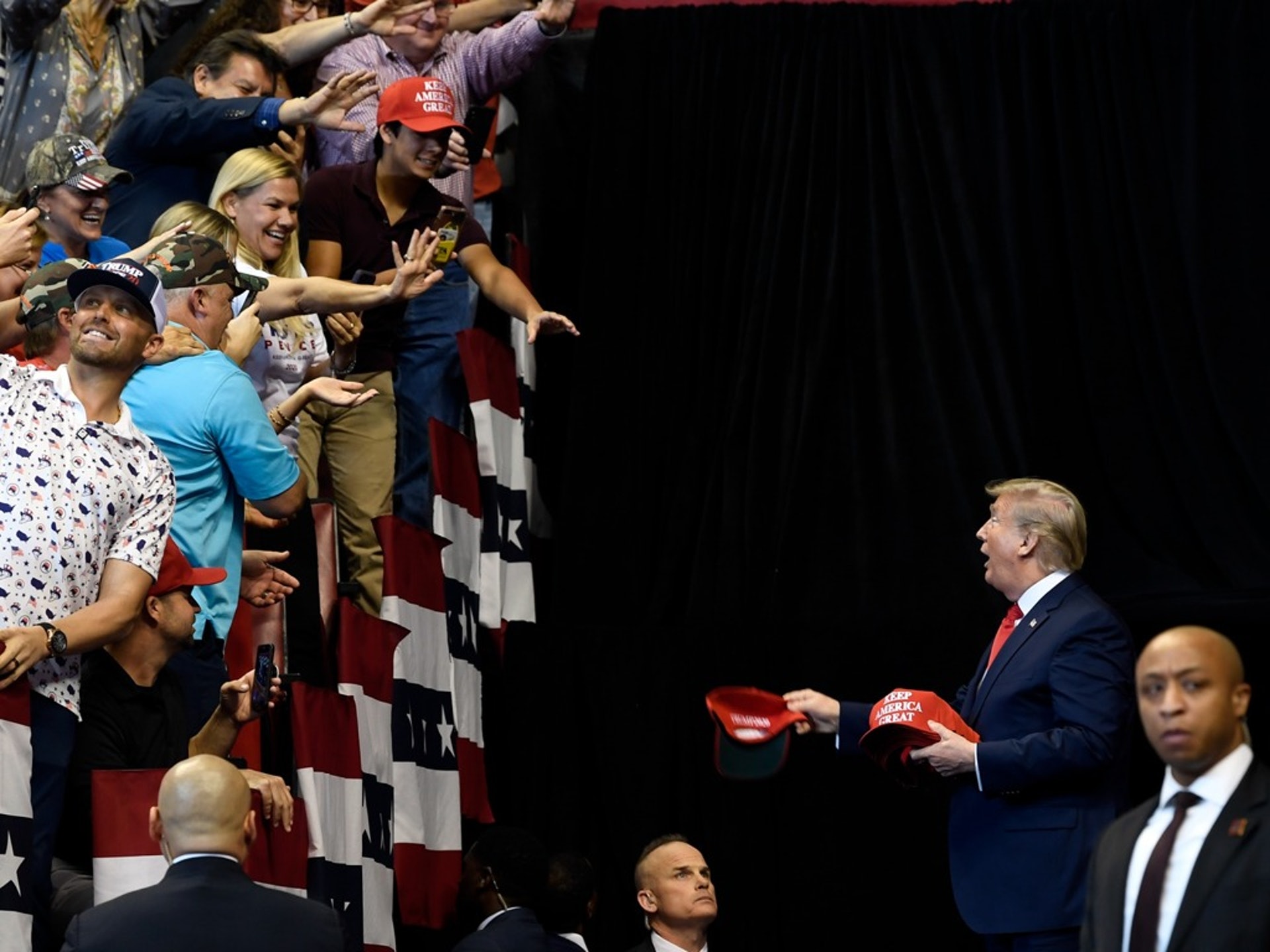On November 27, one day before the Thanksgiving holiday, US President Donald Trump signed the Hong Kong Human Rights and Democracy Act 2019 and the Protection of Hong Kong Act into US law.
Since the U.S. Congress passed the bill with a high vote, although some people think that Trump will refuse to sign and wait for the bill to take effect automatically, public opinion generally believes that Trump will take the initiative to sign because Trump not only has no need to veto it, It is even more necessary to sign.
If Trump vetoes the bill, the risk is too high, and it will only increase internal friction with Congress in the context of the impeachment investigation. Moreover, if Congress passes a high vote, if Trump vetoes and then is overthrown by Congress again, Trump will only be more embarrassed and political morale will be weakened. What’s more, in the past two weeks, Trump has also traveled to multiple states to run for re-election, and has always declared himself a strong president and presidential candidate.
Trump also did not reject the need to sign the Hong Kong bill. On the day of signing the bill, Trump tweeted two tweets, one saying that he had a 95% approval rating within the Republican Party, “thanks the Republican Party”; the other was that the stock market reached a new high, “Congratulations to the US “. These two tweets basically explain the mentality of Trump when he signed the bill involving Hong Kong.
The previous one is actually talking about his dominant position within the party. Since Congress passed the text of the bill on Hong Kong, the two parties have been urging Trump to sign the bill. In particular, some Republican lawmakers have stepped forward to express their support for the bill and the protests in Hong Kong. So, even to cater to the party, Trump will sign the bill because he only cares about the actual political interests of signing the bill, not whether the bill will actually be implemented or whether it will be beneficial to Hong Kong.
This is similar to the three resolutions he vetoed on July 24 this year in Congress to prevent the US government from selling arms to Saudi Arabia, Jordan and the UAE. The interests of these countries in the Middle East.
The latter tweet actually expressed Trump’s “confidence” in the first phase of the current China-US trade talks. Although hardliners such as U.S. Vice President Mike Pence have linked Hong Kong issues to trade talks, judging from Trump ’s latest statement, he gradually understands that even signing the bill by himself will not drag China-US trade negotiations Signing of the agreement.
Before signing the bill, Trump and Chinese President Xi Jinzheng have on average expressed their views on the first stage of trade negotiations. Xi Jinping mentioned on November 22 that China hopes to advance the first-phase trade agreement with the United States on the basis of mutual respect and equality. On November 26, after a call from the leaders of the China-US trade dialogue, Trump mentioned that the United States and China were close to reaching the first phase of the agreement and are now at the final pain point of the agreement.
At the same time, internal Republican sources revealed that a preliminary US-China agreement would be reached before the end of 2019. China has invited Robert Lighthizer and Steven Mnuchin to visit Beijing. If the United States decides that there is a high chance of reaching an agreement, the two are expected to visit Beijing after Thanksgiving.
Trump chose not to sign the bill until the day before the Thanksgiving holiday. It is also an attempt to minimize its negative impact on US-China relations and US-China negotiations, and to avoid the Chinese government’s criticisms in another way. In a separate statement from the White House, Trump said: “I signed these bills out of respect for Chinese President Xi and the people of Hong Kong. The implementation of these bills is in the hope that the leaders of China and Hong Kong People and representatives will be able to resolve differences amicably towards long-term peace and prosperity for the benefit of all. “From this euphemistic statement, Trump also wants to minimize the signing of the bill to the first phase of trade negotiations.
In the end, the delay in reaching the deadline before the bill was the result of Trump’s character. Trump likes to be followed and focused by public opinion, and he also enjoys the feeling that he seems to have the initiative. What’s more, the “guardians” around Trump also hope to sign the bill to divert the pressure from his impeachment investigation, at least in terms of public opinion to move some of the internal pressure outward.
Therefore, based on the above factors and considerations in the United States, Trump signed the bill, which is suitable for the current political climate of Washington and is more in line with his own political interests. China should also be well aware of the political situation facing Trump. Naturally, he will not point his finger at him, and insist on the stance of cut off from the trade war.












